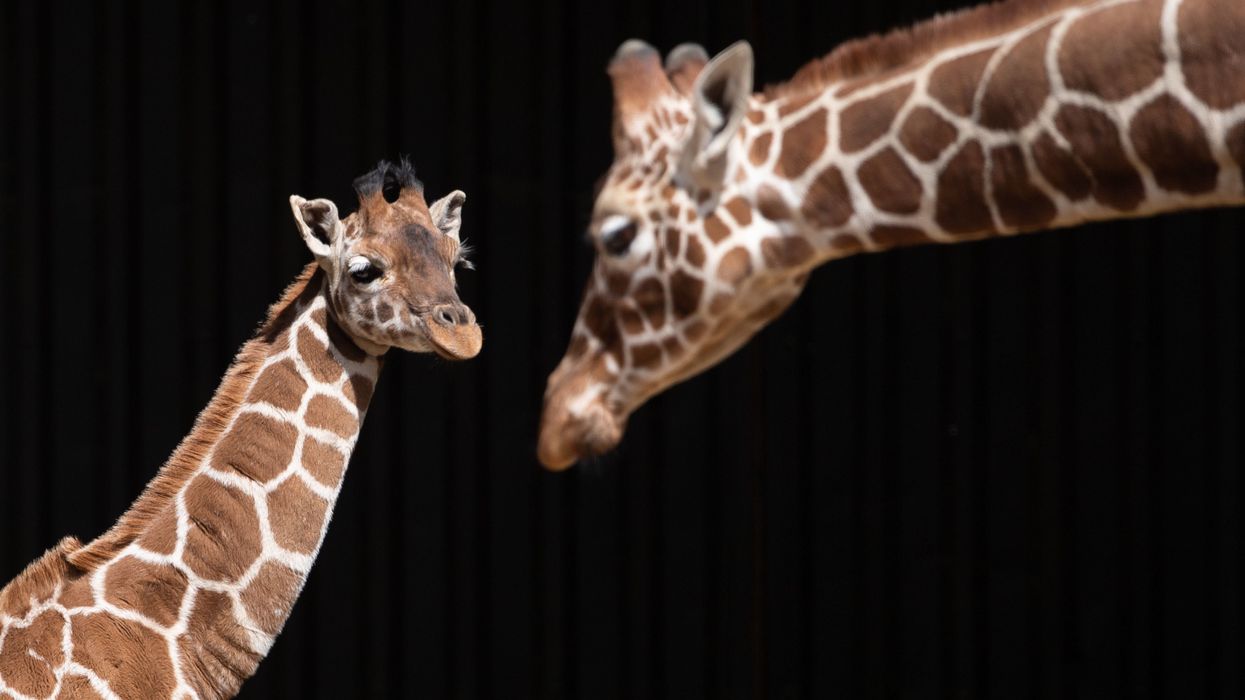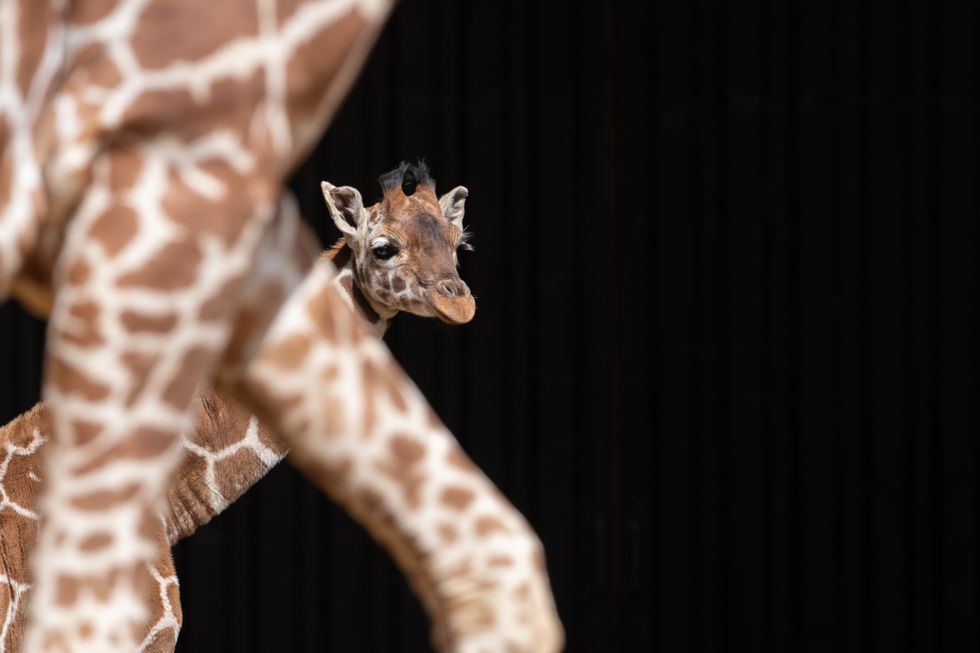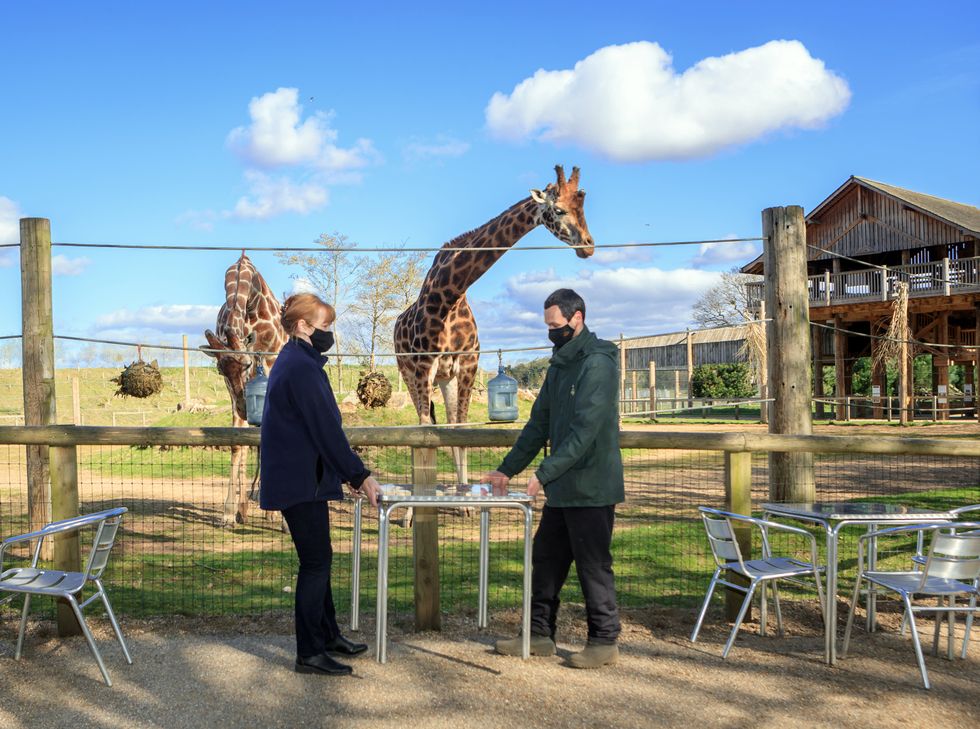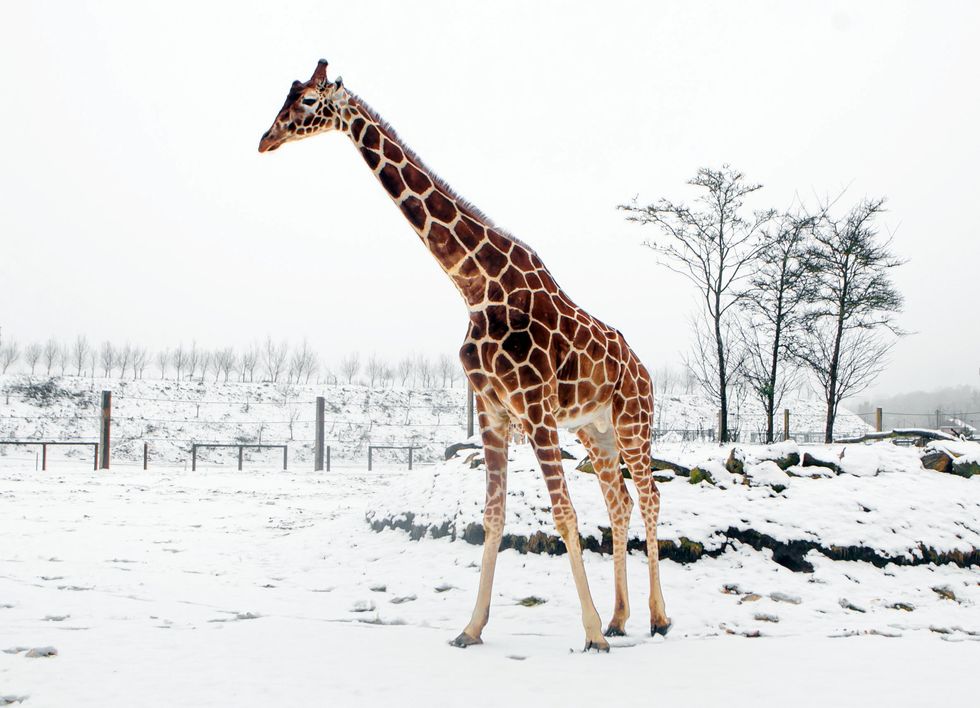
Giraffes are a socially complex species with intricate systems potentially comparable to elephants and chimpanzees, according to a new study.
The mammals were traditionally thought to have little or no social structure, as well as only fleeting, weak relationships.
However, research in the past decade has shown that giraffe social organisation is much more advanced than previously believed.
A study by the University of Bristol, published in the journal Mammal Review, found giraffes spend up to 30% of their lives in a post-reproductive state.
This is comparable to other species with highly complex social structures such as elephants and killer whales, which spend 23% and 35% of their lives respectively in a post-reproductive state.
In these species, it has previously been demonstrated that the presence of post-menopausal females offers survival benefits to related offspring.
For mammals, including humans, this is known as the grandmother hypothesis – suggesting females live long past menopause to help raise successive generations.
Researchers suggest that the presence of post-reproductive adult female giraffes could also function in the same way.
Zoe Muller, of the University of Bristol’s School of Biological Sciences, said: “It is baffling to me that such a large, iconic and charismatic African species has been understudied for so long.
“This paper collates all the evidence to suggest that giraffes are actually a highly complex social species, with intricate and high-functioning social systems, potentially comparable to elephants, cetaceans and chimpanzees.
“I hope that this study draws a line in the sand, from which point forwards, giraffes will be regarded as intelligent, group-living mammals which have evolved highly successful and complex societies, which have facilitated their survival in tough, predator-filled ecosystems.”
She highlighted the need for future research on the subject, including to understand the role that older giraffes play in society and what benefits they bring for group survival.
This will help improve knowledge of their interactions within populations and communities, as well as their conservation needs.
“Conservation measures will be more successful if we have an accurate understanding of the species’ behavioural ecology,” she added.
“If we view giraffes as a highly socially complex species, this also raises their ‘status’ towards being a more complex and intelligent mammal that is increasingly worthy of protection.”
The paper, A review of the social behaviour of the giraffe Giraffa camelopardalis: a misunderstood but socially complex species, is published in Mammal Review.
















